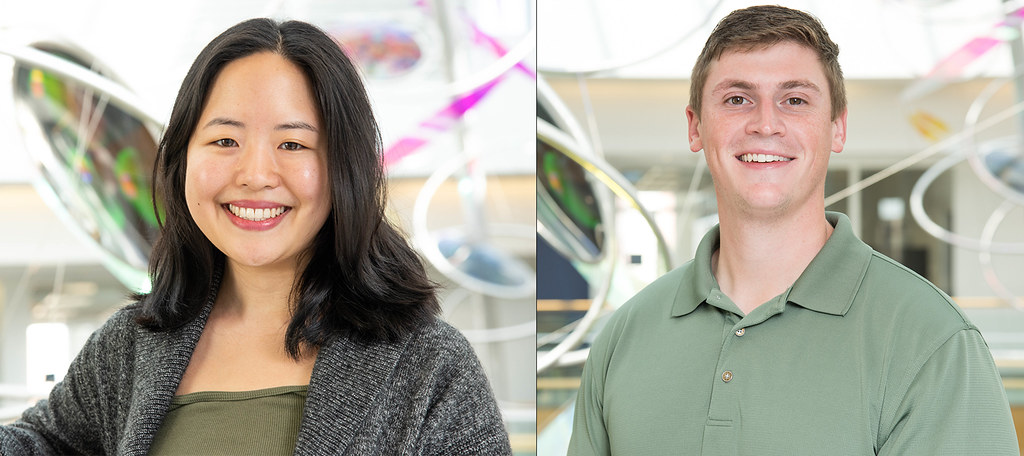Published on
By Beni Adelstein | Bond Life Sciences Center

Brian Thomas got the official letter in the mail Monday after months of waiting.
“It’s a long time coming,” he said, “lots of patience and collaboration.”
Thomas is one of two student scientists at Bond Life Sciences Center to receive F30 fellowships — officially the Ruth L. Kirschstein National Research Service Award (NRSA) — from the National Institutes of Health (NIH) this year, a first for MU.
The agency awards F30 fellowships to MD-Ph.D. students pursuing related areas as they work towards their doctoral degrees. Those awards add up, with up to six years of funding to cover costs of research and clinical training.
When Thomas originally applied, his proposal was rejected, but the second time was the charm. He studies cancer immunology in the lab of Donald Burke at Bond LSC.
“You learn from failure, reflect on it and grow,” he said. “You learn to think critically about your research proposal and organization.”
Cynthia Tang — also working toward her MD-Ph.D. dual degree — got official word about her award ahead of Thomas. It allows her to continue her research in the lab of Henry Wan at Bond LSC. She researches the evolution and spread of Sars-Cov2 — the cause of the Covid-19 pandemic. Her proposal was also rejected the first time, yet she persevered. She encourages other students to apply for the fellowship.
“You should really go for it. It seems like a lot, and it can be really intimidating when you look at the checklist and all the components,” Tang said. “But it is possible, and it is doable.”
Both students are thankful for what the fellowship has done for them. It pushed them to navigate the highly competitive grant application process as well as clearly outline their goals and ambitions.
“We have an incredible grants team and our faculty is amazing,” Tang said. “There are so many resources available at Mizzou.”
Thomas agrees.
“We have fantastic directors doing a wonderful job growing the environment of our programs and tending to our student’s needs,” he said.
This NIH fellowship is an opportunity for students to pursue their passions in science and research while alleviating financial burdens, giving researchers like Tang and Thomas the tools to succeed.
The Tom and Anne Smith MD-Ph.D. Program at the MU School of Medicine is a seven- to nine-year course of study that combines the traditional four years of medical school with the three to five years typically required to earn a doctorate in a scientific discipline. It prepares students for a career in academic medicine.
About Bond LSC
At Bond Life Sciences Center, the best answers come from working together. Our building and culture leverage expertise of faculty investigators to develop discoveries that matter. Our researchers represent diverse academic backgrounds with projects focused on infectious diseases, agriculture, informatics, the environment and other areas. By moving beyond the boundaries of departments, our research increases its impact and lays the groundwork for a better world while teaching the next generation of scientists.